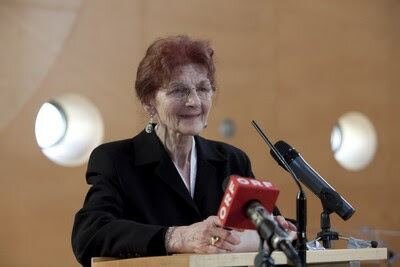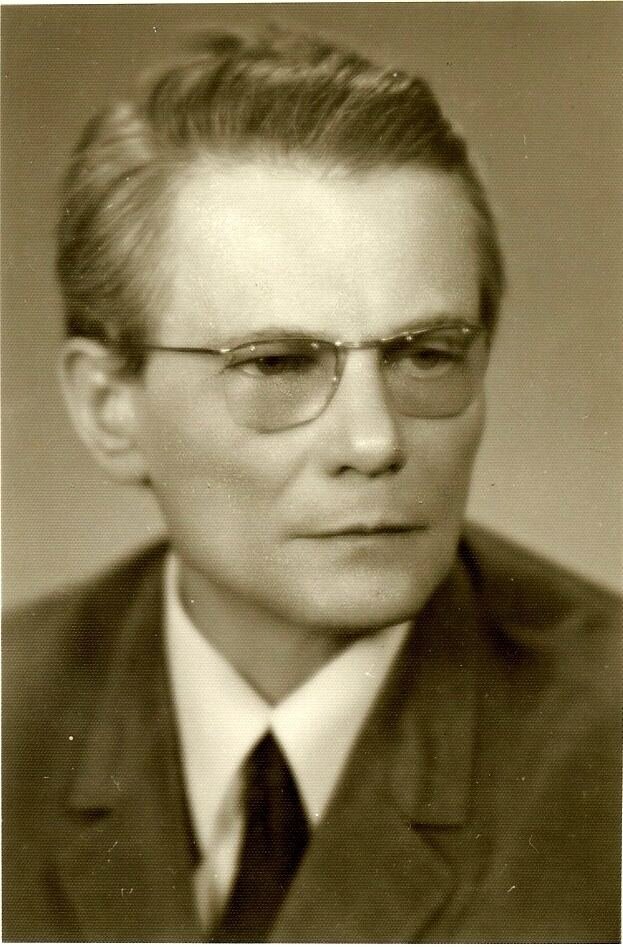Ludmila Javorva, A Priest Forever -- on the 49th Anniversary of Her Ordination to Priesthood
/Today, December 28, 2019, we honour the 49th anniversary of the ordination to Roman Catholic priesthood of Ludmila Javorova. Born in 1932, Ludmila is a Czech woman who was one of at least 7 women and a number of married men ordained to serve as priests in the underground church of Soviet occupied Czechoslovakia.
During the Soviet era in Czechoslovakia, Catholic religious orders were banned, and most existing clergy were forced into military service, jailed, sent to forced labour camps, tortured and in some instances, murdered. 1
Ludmila Javorova, today
The Communist state viewed religion with suspicion. Religious issues could not be brought into public life. Male priests were easily identifiable Secret police could be listening in at any moment. If a priest was perceived as a threat to the government, he would be jailed or disappeared. The practice of faith was persecuted. While trying to manage an oppressed church, Czechoslovakia’s Bishop Felix Davidek sensed they were living in a time that was not ordinary—it was a ‘kairos’ moment— a time of opportunity. 2, 3
It was in this climate of fear that he decided to ordain qualified individuals--including women--to be priests. He justified the ordinations by the pastoral needs of a church suffering harsh persecution. He himself had endured fourteen years in Soviet prison for his faith. While a prisoner, he was troubled by the fact that women being held had no priest among them. His concern for their spiritual needs, his intelligence and practicality led him to conclude that priests of the same gender (female) could go under the radar and effectively serve as sacramental ministers for those women. Insisting that canon law must not infringe on God's law, and guided by its principle that it (canon law) should be used in the service of salvation, Davidek discerned he would move forward with ordination of women. In his view that law did not cover every life situation, and the needs of women in prison and the oppressed Church were paramount. 4 ‘The people need the ordination of women. They are literally waiting for it and the church should not prevent it,’ he is reported to have said. 5
Bishop Felix Davidek
Davidek felt that the Holy Spirit was confirming that Ludmila should be ordained a priest. So, on December 28, 1970 she received her ordination and became a Catholic priest.6 During those dark days of oppression and persecution, Javorova celebrated the Mass secretly. Without drawing suspicion of authorities that she was a priest, she was able to visit women in prison who wished to receive the sacraments. ‘She served as she could, even though she had to keep her ordination a secret from most people.’ 7 Later, the Pope declared her ordination illegitimate, but who can guess the status of the Czechoslovakian church if she had not followed the Holy Spirit’s leading?8
‘Javorova’s life is certainly reminiscent of Esther, a woman called upon by God to serve “for such a time as this” (Esther 4:14). Javorova’s story shows us that God’s call cannot be confined by societal expectations. Even though Javorova lived during a harsh time, she may very well have never been ordained if not for the burdensome time in which she lived. God makes use of his servants, and even difficult situations, if we are bold enough to accept God’s call.’9
Ludmila Javorova as a young woman
The series of velvet revolutions that liberated European countries from Soviet domination in 1989 brought democracy back to Czechoslovakia. With religious freedom restored, the hidden church was no longer necessary, and the Vatican began the process of deciding whether to recognize the Holy Orders of the Czechs—single men, married men, and women—whom Bishop Davidek had ordained.10 Many of the priests from the hidden church worried that the Vatican would not recognize their Orders so they chose to remain ‘underground’. Ludmila wasn’t one of them. Although her ordination wasn’t public knowledge, she made no effort to hide it from Vatican officials. The result was predictable. In 1996, she was forbidden to exercise her priesthood on the grounds that her Orders were invalid—not because she had been ordained in the hidden church, but for the sole reason that she was a woman.’ 11 Ludmila obeyed.
Despite her outward obedience to the Vatican, Javorova finds the church’s refusal to ordain women incomprehensible. ‘I cannot understand when it is a matter of salvation or of helping souls in need, why the hierarchy of the church objects if a woman should enter into the process. Who is the priest? Someone to accompany people in their joy and in their suffering, who offers to go together with them, who is an experience of Christ to them, who works together with God.’ 12
Ludmila, a priest forever.
- Therese Koturbash, Women’s Ordination Worldwide Communications Team
Therese Koturbash, BA, LLB, GDCL served as Canadian Delegate to Women’s Ordination Worldwide from 2008 to 2013. For all five of those years, she was elected member of WOW's four person International Leadership Circle. She has also been the National Coordinator of Canada's Catholic Network for Women's Equality. Today, Therese serves on WOW’s Communications Team and is a volunteer with WOW member group, Wijngaards Institute for Catholic Research. Her paid work is as a family attorney.
To learn more about Ludmila Javorova, these are some excellent resources:
Peter Hebblethwaite, “Secret ordinations kept Czech church alive.” National Catholic Reporter, 10 September 1993.
Dr. Suzanne Tunc, Ludmila Javorova : Histoire de la première femme prêtre. Paris, Temps présent, 2012.
Fr. Kerry Walters, ‘My Priesthood As a Woman Has Been Different’, February 24, 2014, The Call: An Online Magazine of the American Catholic Church
Miriam Therese Winters, Out of the Depths: The Story of Ludmia Jarovová, Ordained Roman Catholic Priest. Crossroad, 2001.
www.womenpriests.org
_______________________________________
1 Ludmila’s Story: Beliefnet.com Beliefnet.comhttps://www.beliefnet.com/faiths/catholic/2001/05/ludmilas-story.aspx
2 Ritchie, Hilary, Ludmila Javorova: For Such a Time as This : March 26, 2014, CBE International cbeinternational.org/blogs/ludmila-javorova-such-tim
3. ‘kairos’ - ancient Greek word meaning the right, critical, or opportune moment.
4 Tarjanyi, Judy, Female Priest Tells Her Story:Toledo Blade July 14, 2001.
5. ibid.
6. Ritchie, ibid.
7. Ritchie, ibid.
8. Ritchie, ibid.
9. Ritchie, ibid.
10. ‘My Priesthood as a Woman Has Been Different’, February 24, 2014, The Call, An Online Magazine of the American Catholic Church , http://anccthecall.org/2014/02/24/my-priesthood-as-a-woman-has-been-different/
11. ibid.
12. ibid.
_______________________________________________________
This page contributed by Therese Koturbash:
Therese Koturbash, BA, LLB, GDCL served as Canadian Delegate to Women’s Ordination Worldwide from 2008 to 2013. For all five of those years, she was elected member of WOW's four person International Leadership Circle. She has also been the National Coordinator of Canada's Catholic Network for Women's Equality. Today, Therese serves on WOW’s Communications Team and is a volunteer with WOW member group, womenpriests.org and Wijngaards Institute for Catholic Research. Her paid work is as a family attorney.



